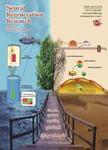Neural differentiation of human placenta-derived mesenchymal stem cells following neural cell co-culture
Neural differentiation of human placenta-derived mesenchymal stem cells following neural cell co-culture作者机构:VIP Department Medical School Hospital Qingdao University Qingdao 266003 Shandong Province China
出 版 物:《Neural Regeneration Research》 (中国神经再生研究(英文版))
年 卷 期:2011年第6卷第1期
页 面:23-28页
核心收录:
学科分类:0710[理学-生物学] 07[理学] 08[工学] 09[农学] 071006[理学-神经生物学] 0901[农学-作物学] 0836[工学-生物工程] 090102[农学-作物遗传育种]
主 题:human placenta-derived mesenchymal stem cells Transwell co-culture differentiation neural cells
摘 要:We induced human placenta-derived mesenchymal stem cells (hPMSCs) to differentiate into neural cells by adding chemical reagents, despite the fact that toxic chemicals induce cell shrinkage or cytoskeletal formation, which does not represent a proper cell differentiation process. The present study established a co-culture system with hPMSCs and neural cells and analyzed the influence of neural cells on hPMSC differentiation in a co-culture system, hPMSCs were isolated and purified from human full-term placenta using collagenase digestion. Fetal neural cells were co-cultured with hPMSCs for 48 hours using the Transwell co-culture system, hPMSCs co-cultured with neural cells exhibited a slender morphology with a filament. After 96 hours, hPMSCs expressed neuron-specific enolase, which suggested that co-culture of hPMSCs and neural cells induced neural differentiation of hPMSCs.



